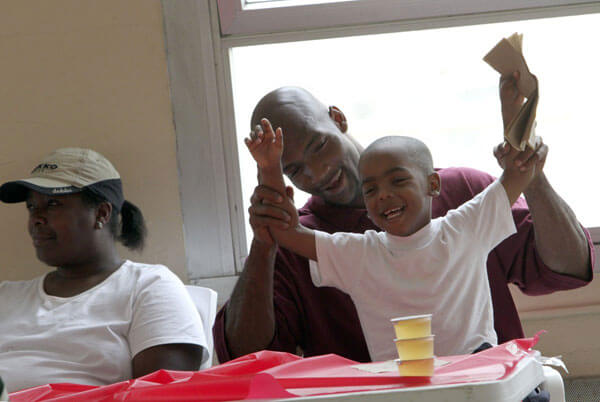By Mark Hallum
Lawmakers and attorneys are pushing to restore visitation rights for convicts in medium security facilities across the state, claiming limits to family contact contribute to recidivism and violence in prison.
State Assemblyman David Weprin (D-Fresh Meadows), who serves as chair of the Committee on Correction, rallied with Assemblywoman Carmen De La Rosa (D-Manhattan) and the Legal Aid Society, among others, at City Hall June 15 for the passage two bills designed to restore seven-day visitation rights and transportation provided to family members by the state.
“The amount gained by limiting visitation in our prisons does not match what is lost,” Weprin said. “Increased visiting has been proven to reduce recidivism, as visits help family members maintain ties and help incarcerated individuals transition to a life outside prison after release. On top of that, there is evidence to suggest that more visiting means less violence in prisons, which means a better work environment for both civilian and security employees in New York’s prisons. And even if we look at it from a cost standpoint, reduced recidivism would greatly lower costs for the state in the long term.”
Attorney Tina Luongo, who heads up criminal practice at the Legal Aid Society, was critical of the current regulations against seven-day visitation rights as not only a reason for conflict on the inside, but also on behalf of crowds of families on weekends visiting loved ones who are forced to rush and ultimately cut their time short.
“New York’s prison visitation policies at medium security facilities are fundamentally flawed and inflict punitive harm on the incarcerated,” Luongo said. “The current weekend-only visitation structure is too often chaotic and rushed due to large crowds leaving relatives little quality time to spend visiting a family member. We need reform now and restoring weekday visits along with the family bus program as viable ways for low-income people to visit relatives is the right path forward. This is smart policy: visitation reduces recidivism and creates safer prisons and safer communities.”
The Legal Aid Society has offices in Forest Hills and at the Jamaica Civil Courthouse.
De La Rosa, who is the main sponsor of the bill to provide transportation with Weprin as co-sponsor, said the children of incarcerated parents are often hurt the most by the lack of transportation to prisons from the city. She said the amount of money saved by withdrawing the service is minimal compared to total funding for the Department of Corrections.
“This system was operational in our state from 1973 to 2011, when it was eliminated for a cost savings of $1.5 million in a Department of Corrections budget of $3 billion,” De La Rosa said. “Studies have shown that family visitation contributes to reductions in recidivism and improved inmate behavior, which results in safer prisons and cost savings in the long run. There are close to 100,000 children in our New York state who have an incarcerated parent. When you look at communities who have families that have been historically and disproportionately affected by criminal justice policies in our state, it is incumbent upon us to find solutions that foster a family’s ability to maintain relationships.”
At the moment, 7-day visitations are only permitted at maximum- and medium-security penitentiaries.
Reach reporter Mark Hallum by e-mail at mhall


































